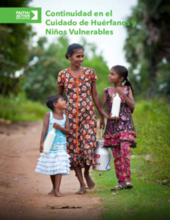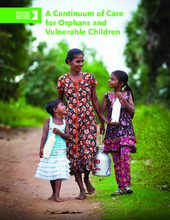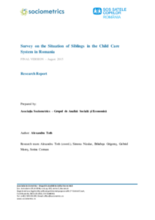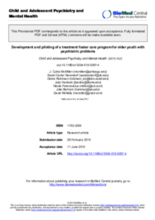Displaying 1751 - 1760 of 2221
This webinar looks at the range of alternative care for children who have been separated from parental care and emphasizes family care.
Esta guía es la tercera publicación en una serie producida por the Faith to Action Initiative (Iniciativa de Fe en Acción) para proporcionar a las iglesias, a las organizaciones basadas en la fe, e individuos de fe con información para ayudar a guiar la “mejor práctica”. La guía proporciona una visión general de una gama de opciones de cuidado alternativo para los niños que han sido separados del cuidado parental.
A Continuum of Care provides an overview of a range of alternative care options for children who have been separated from parental care.
This report provides data and background on challenges of placing siblings together in foster families.
This study investigated different environmental and contextual factors associated with maltreated children's adjustment in foster care in Quebec, Canada.
This chapter from the book 'Rutter's Child and Adolescent Psychiatry' focuses on foster care and residential care practices around the world and the benefits and challenges of supporting foster care interventions, transitioning away from the use of institutional care.
Safety, or the absence of maltreatment, is the primary mandate of the child protection services (CPS) system, both for children living at home and those living away from home. Yet, few research studies have examined maltreatment in out-of-home care due to the low incidence rate and data limitations. This study used statewide administrative data to estimate the association between placement type and experiencing a maltreatment investigation or substantiation in out-of-home care.
This paper reports on the development and piloting of a manualized treatment foster care program in the US designed to step down older youth with high psychiatric needs from residential programs to treatment foster care homes.
This study examined psychopathology at age 12 years in a cohort of Romanian children who had been abandoned at birth and placed into institutional care, then assigned either to be placed in foster care or to care as usual.
To facilitate well-informed decisions, the researchers collected and disseminated evidence from systematic reviews (SR) to local child welfare stakeholders in Norway through plain language summaries. This article describes that process.




